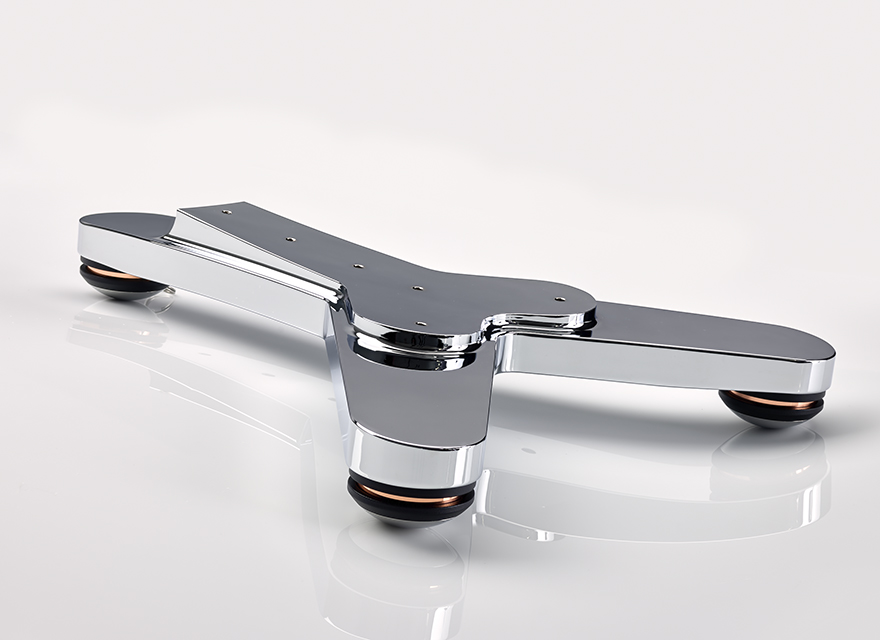
M Pod
Magico’s noise channeling support system for medium to heavy loads. Many have already experienced the significant sonic improvements with the Magico QPOD placed under light-to medium-weight components. Magico engineers have now succeeded in designing the larger MPOD with these same philosophies for ideal noise reduction and floor coupling characteristics under greater loads.
The design of the MPOD is based on the scientific principles of Constrained Layer Damping (CLD), an extremely effective way to channel unwanted vibrations away from a component and its platform. The robust-yet-elegant MPOD is comprised of multiple machined aircraft-aluminum and tungsten steel parts that, when assembled, form a vertical stack. A solid pure-copper substrate center section is sandwiched by a top and bottom layer of ISODAMP a thermoplastic material that, when compressed against the copper substrate, facilitates the constrained layer damping function and dissipates unwanted energy virtually immediately.
Prior to installation the top and bottom halves of the MPOD are held apart by a center spindle and pull-pin. Once the MPOD is installed the removal of the pull-pin engages the CLD properties of the MPOD. Once the pin is removed, no hardware is connected between the top and bottom part of the MPOD, effectively “floating” the component placed on it. The results: increased resolution, more focused imaging and improved soundstage.
The threaded coupling stud on the MPOD is designed as an upgrade to replace the existing footer on the Magico M3, Q7, Q7MkII, M-Project, and S7, as well as being supplied as the standard foot for our M6. The audible benefits of the MPOD will also be realized underneath heavier components such as amplifiers, without using the threaded coupling stud.




